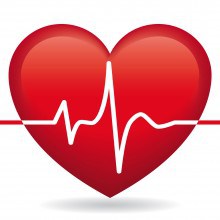New York– Heart complications are uncommon yet treatable for children and young adults after Covid-19 disease, according to a new scientific statement from the American Heart Association.
However, the statement, published in the journal Circulation, showed that some children experience abnormal heart rhythm, inflammation in and around the heart muscle or multisystem inflammatory syndrome (MIS-C), a new condition identified during the pandemic.
“Two years into the pandemic and with vast amounts of research conducted in children with Covid-19, this statement summarises what we know so far related to Covid-19 in children,” said Chair of the statement writing group, Pei-Ni Jone, from Children’s Hospital Colorado, US.
“We focused on the effects of this virus for those with congenital or other heart disease, as well as the latest data about the potential association of Covid-19 vaccines with heart complications in children and young adults. While there is a lot we know, this public health emergency needs ongoing research to understand the short and long-term impacts on children,” Jone added.
Since the start of the Covid-19 pandemic, MIS-C has been identified around the world, with as many as half of the cases involving inflammation of the heart muscle or heart arteries. During the first year of the pandemic, one of every 3,164 children with SARS-CoV-2 infection developed MIS-C.
For children who develop MIS-C, intravenous immunoglobulin has been administered alone or as dual therapy with infliximab or other immunomodulatory agents. Most children’s hearts recovered well within 1 to 4 weeks of MIS-C diagnosis. The risk of long-term complications and death from MIS-C is estimated to be 1.4-1.9 per cent.
Covid-19 vaccines were found to prevent severe Covid-19 disease and decrease the risk of developing MIS-C by 91 per cent among children ages 12-18 years, the statement said.
Other heart-related complications in children with Covid include: Cardiogenic shock, where a suddenly weakened heart can’t pump enough blood to meet the body’s needs; myocarditis (inflammation of the heart muscle); pericarditis (inflammation of the pericardium, a thin, sac-like structure that surrounds the heart); and arrhythmias (irregular heartbeats and rhythms).
“Although much has been learnt about how the virus impacts children’s and young adult’s hearts, how to best treat cardiovascular complications and prevent severe illness and continued clinical research trials are needed to better understand the long-term cardiovascular impacts.
“It is also important to address health disparities that have become more apparent during the pandemic. We must work to ensure all children receive equal access to vaccination and high-quality care,” Jone said.
The data also suggest it’s safe for youth with mild or asymptomatic Covid-19 to return to sports after recovery from symptoms.
For those with more serious infections, it’s reasonable to have heart exams including an echocardiogram, blood tests for heart enzyme levels and other heart function screening before resuming sports or strenuous physical exercise. (IANS)














